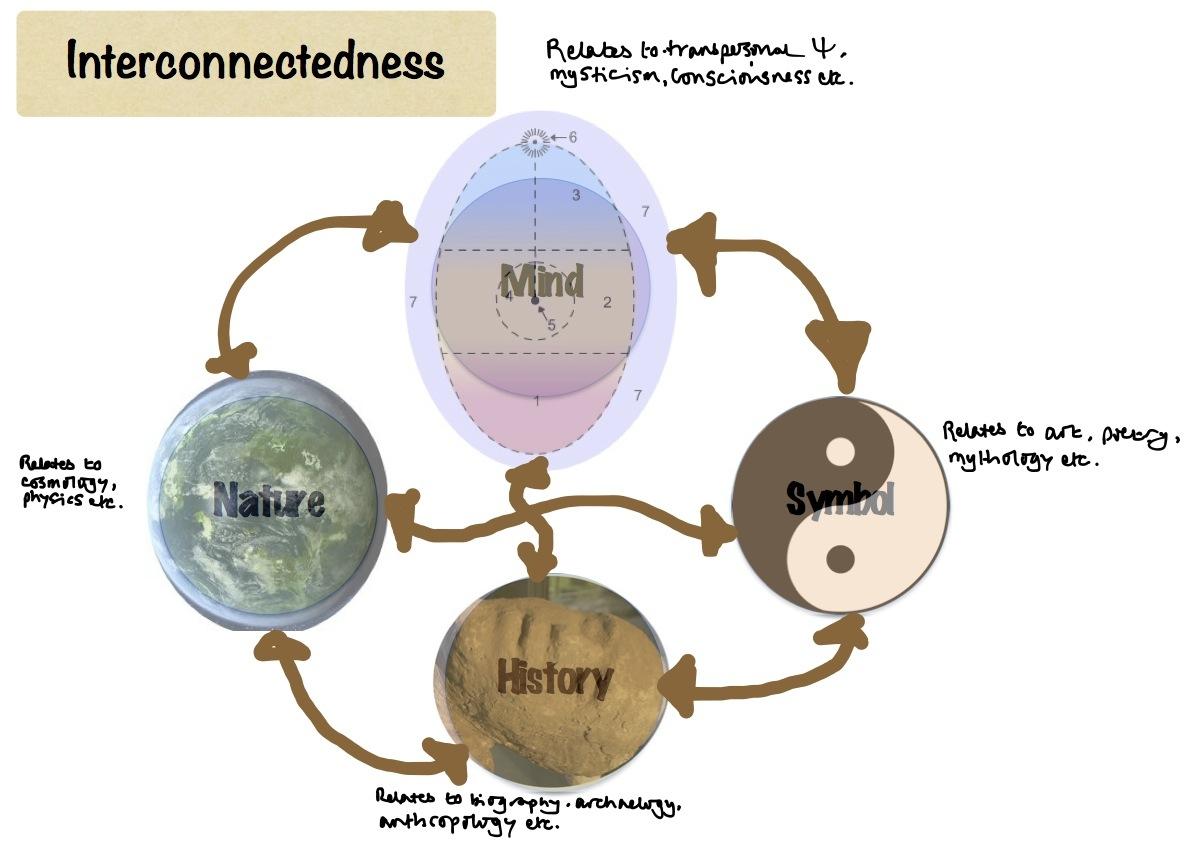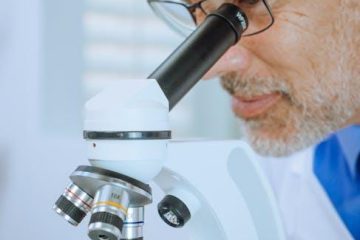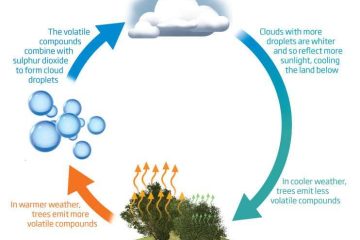In the vast tapestry of our planet’s ecosystems, there exists a captivating theory that invites us to view Earth not merely as a collection of individual organisms, but as a harmonious, interconnected living entity. This thought-provoking concept, known as the Gaia hypothesis, proposes a unique perspective on how our world functions and thrives. Join us on a journey through this intriguing theory, as we delve into the intricate web of relationships that bind together the land, oceans, and atmosphere in a symphony of life.
Table of Contents
- Exploring the Origins of the Gaia Hypothesis
- Unveiling the Interconnectedness of Earth’s Systems
- Harnessing Gaia’s Wisdom for Sustainable Living
- Embracing the Gaia Hypothesis: Practical Steps for Environmentally Conscious Choices
- Q&A
- To Wrap It Up
Exploring the Origins of the Gaia Hypothesis
The Gaia Hypothesis delves into the interconnectedness and interdependence of life on Earth, proposing that the planet functions as a self-regulating organism. This fascinating concept challenges traditional scientific views by suggesting that Earth itself is a living entity, capable of maintaining conditions suitable for life.
Key Points:
- James Lovelock: Introduced the Gaia Hypothesis in the 1970s.
- Earth as a Superorganism: Viewing the planet as a single living system.
- Feedback Mechanisms: How nature regulates itself to support life.
- Controversies: Debate around the validity of the hypothesis among scientific communities.
Exploring the Gaia Hypothesis invites us to rethink our relationship with the planet, highlighting the intricate balance that exists between living organisms and their environment. As we continue to unravel the mysteries of Earth’s ecosystems, this hypothesis provokes thought-provoking discussions about sustainability, biodiversity, and the future of our shared home.
| Advantages | Challenges |
|---|---|
| Encourages a holistic view of Earth | Criticism from traditional scientific circles |
| Promotes environmental awareness | Complexity in proving the hypothesis |

Unveiling the Interconnectedness of Earth’s Systems
Exploring the delicate balance and intricate web that connects Earth’s diverse systems is akin to unraveling nature’s oldest mysteries. From the complex dance of ecosystems to the subtle interactions between the atmosphere, hydrosphere, lithosphere, and biosphere, the Gaia hypothesis posits a harmonious unity that defines our planet. This interconnectedness underscores the profound ways in which each element influences and sustains the others, forming a grand tapestry of life.
As we delve deeper into the realms of planetary science and ecological studies, we uncover the profound significance of feedback loops, synergistic relationships, and self-regulating mechanisms that define Earth’s resilience. Through the lens of the Gaia hypothesis, we gain a profound appreciation for the planet’s inherent ability to maintain stability amid changing conditions, highlighting the intricate ways in which nature fosters equilibrium and sustainability. Embracing this holistic view of Earth’s systems unveils a wondrous world where every organism, every element, and every phenomenon plays a vital role in the grand symphony of life.

Harnessing Gaia’s Wisdom for Sustainable Living
Embark on a journey of discovery as we delve into the timeless wisdom that Gaia, our living planet, has to offer. The Gaia Hypothesis presents us with a profound perspective, suggesting that Earth functions as a self-regulating organism. This concept invites us to reevaluate our relationship with nature and explore ways to align our actions with the planet’s natural rhythms.
<p>Through <strong>connecting with Gaia's wisdom</strong>, we can gain insights into sustainable living practices that honor the delicate balance of ecosystems. By harnessing the power of biodiversity, recycling resources, and fostering harmony with all living beings, we pave the way for a more resilient and thriving future for generations to come.</p>
Embracing the Gaia Hypothesis: Practical Steps for Environmentally Conscious Choices
In our journey towards a more sustainable future, embracing the Gaia Hypothesis paves the way for environmentally conscious choices that benefit not just ourselves, but the entire planet. By understanding the interconnectedness of all living beings and the Earth itself, we can take practical steps to nurture our environment and promote harmony within the natural world.
Practical Steps You Can Take:
- Plant Trees: Contribute to reforestation efforts or simply plant a tree in your backyard to support carbon sequestration.
- Reduce Waste: Embrace a zero-waste lifestyle by recycling, composting, and using reusable products to minimize your environmental footprint.
- Support Local Farmers: By choosing locally sourced and organic produce, you can reduce the carbon footprint associated with food transportation.
- Embrace Renewable Energy: Transition to solar or wind power for your home energy needs to reduce reliance on fossil fuels.
- Connect with Nature: Spend time outdoors, immerse yourself in the beauty of nature, and cultivate a deeper appreciation for the Earth’s wonders.
| Benefits of Embracing the Gaia Hypothesis |
|---|
| – Increased environmental awareness |
| - Enhanced sense of community with nature |
| – Positive impact on overall well-being |
Q: What is the Gaia Hypothesis and who proposed it?
A: The Gaia Hypothesis, put forward by scientist James Lovelock in the 1970s, suggests that the Earth functions as a single living organism, where biological and environmental systems interact to maintain conditions conducive for life.
Q: How does the Gaia Hypothesis differ from traditional views of the Earth?
A: Unlike conventional perspectives that view the Earth as a passive host for life, the Gaia Hypothesis proposes that life actively regulates and stabilizes the planet’s environment to ensure its own survival.
Q: What are some examples that support the Gaia Hypothesis?
A: Examples backing the Gaia Hypothesis include the regulation of oxygen and carbon dioxide levels by living organisms, the stabilization of surface temperature, and the maintenance of ocean salinity.
Q: Are there criticisms of the Gaia Hypothesis?
A: Critics argue that the Gaia Hypothesis anthropomorphizes the Earth and oversimplifies complex ecological systems. Some also question the extent of self-regulation exhibited by the planet.
Q: How has the Gaia Hypothesis influenced environmental science and sustainability practices?
A: The Gaia Hypothesis has sparked discussions on interconnectedness in ecosystems and the importance of preserving biodiversity to maintain a balanced environment. It has inspired further research on Earth’s self-regulating mechanisms and how human activities impact these delicate systems.
To Wrap It Up
As we conclude our exploration of the Gaia Hypothesis, we are reminded of the interconnectedness of all living beings on our planet. The notion that Earth functions as a self-regulating organism challenges us to rethink our relationship with the environment and the delicate balance that sustains life. Whether you embrace this theory wholeheartedly or approach it with skepticism, the beauty of science lies in its ability to provoke thought and spark curiosity. Let us continue to marvel at the wonders of our planet, reflecting on the profound implications of the Gaia Hypothesis and how it shapes our understanding of the world we call home. Thank you for joining us on this enlightening journey.



0 Comments